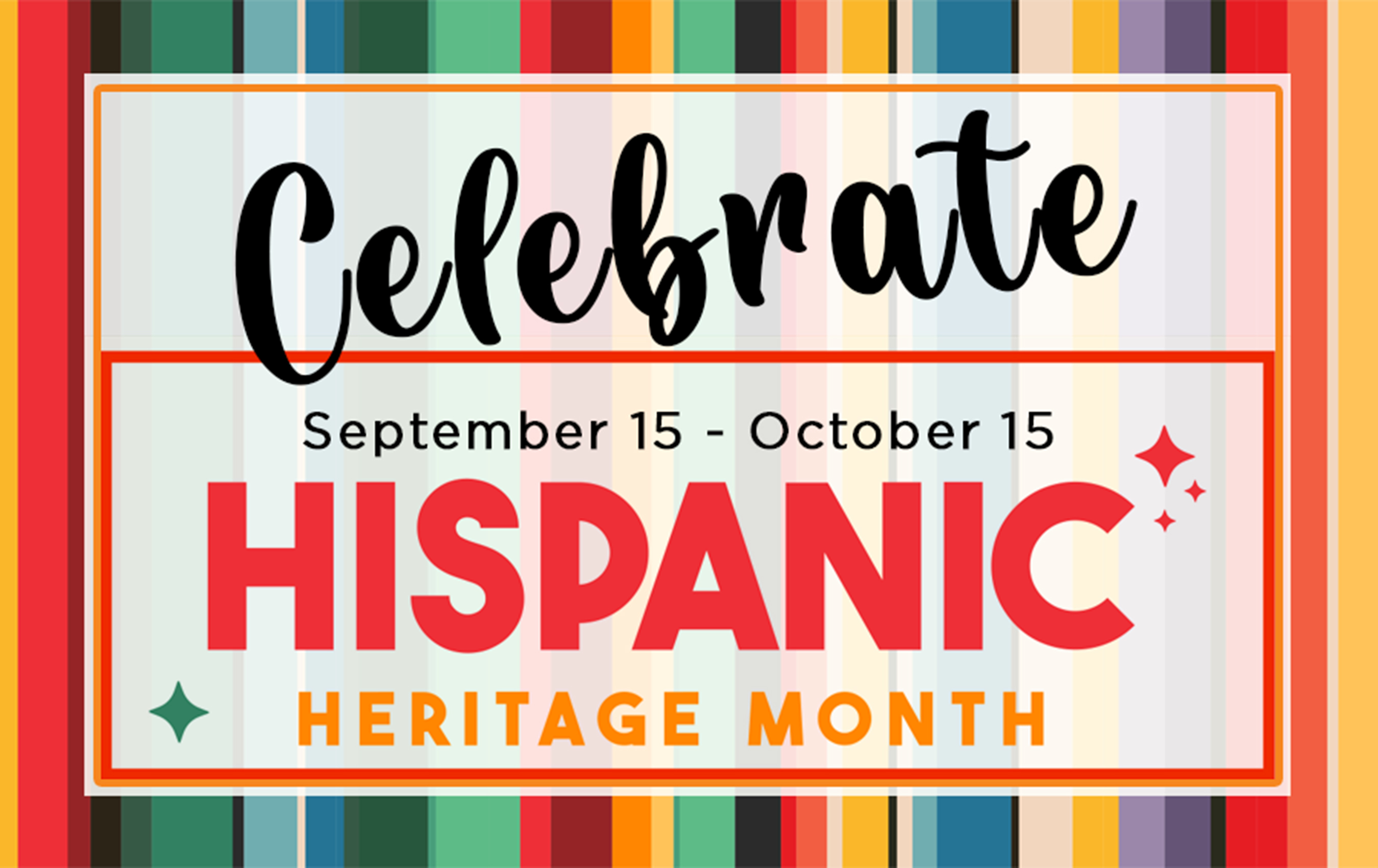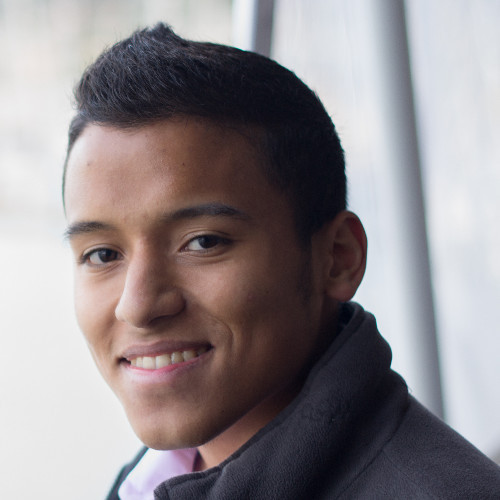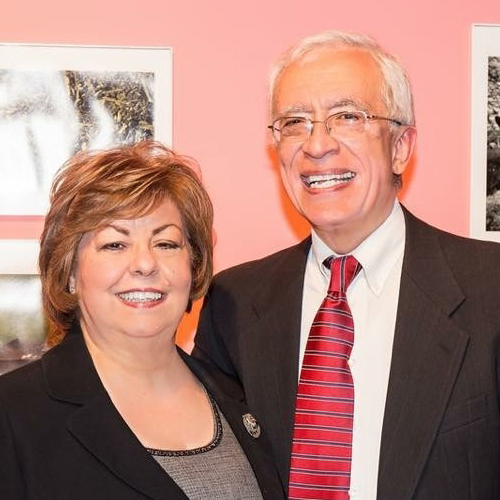Hispanic Heritage Month

We rejoice in the rich tapestry that makes up the Christian church. We observe National Hispanic Heritage Month — from September 15 to October 15 — by celebrating the histories, cultures, and contributions of Hispanics to the church body. Here we have highlighted the life and ministry of some key Hispanic Christian leaders.
The following resources are a mere sample of many Hispanic leaders, theologians, and histories. Our hope is to encourage you to learn the many ways Hispanic Christian leaders are shaping our church today.

|  | James Ortiz
Deacon | Redeemer Presbyterian Church East Side
|
We took the opportunity to interview James Ortiz, one of our newest Deeks, for Hispanic Heritage Month. Read his responses to our questions below and get to know James.
Who are some Hispanic Christian leaders who have influenced you?
Marco Monroy, a pastor at Comunidad de Fe Church in Mexico, impacted me through a series of talks he gave on servant leadership and how we can learn from Jesus’ example as a leader.
How can we pray for you and your service with the RES Diaconate?
I would appreciate prayers for strength whenever I am discouraged by my weaknesses and for the courage to trust God when I serve.
What can we do to help Hispanic people visiting our church feel welcomed and cared for?
Perhaps we could ask visitors to raise their hands during the worship service to make it easier for congregants to identify and welcome visitors. Ask questions like sharing cultural backgrounds, favorite foods, etc. during the Passing of the Peace. Possibly incorporate moments where Spanish is spoken during the worship service. For example, one of the worship songs or prayers could be given in Spanish.
Who are some of your favorite Hispanic Christian Contemporary music artists that we should be listening to?
- Miel San Marcos
- Majo y Dan
 |  | Luis and Maggie Iza | Founders |
The Open Door is one of Redeemer East Side's preferred Hope for New York (HFNY) affiliates. Luis and Maggie Iza, founders of The Open Door and former members of RES, immigrated from Cuba years ago. Read Luis' responses to our questions below and get to know him and his ministry.
Please share your family’s history in America.
I am a Cuban immigrant. In 1961, I arrived in the United States with my mother, father, and brother. My sister was born here several years later. When my family and I came to this country, we brought with us not only our love for Cuban sandwiches, Ropa Vieja (a traditional dish of shredded beef in a rich tomato sauce), and a passion for baseball, but we also carried strong family values. As a result of our Cuban roots, my siblings and I were raised to have respect for our elders, an esteem for authorities and the law, a deep love for Christ, and an unwavering sense of hospitality.
As a young boy, I was an avid stamp collector, and this hobby sparked my fascination with the world’s diversity. I understood, even then, that the world was vast and filled with different people. But nothing could have prepared me for the world’s enormity quite like landing in Washington Heights, New York City. I remember feeling like a single speck of sand against an endless ocean.
Although I was just a child at the time, I vividly remember the kindness of an Anglo woman with fiery red hair who welcomed us upon our arrival. Later, a Puerto Rican woman took me under her wing, investing her time and energy into me. She helped me navigate the city and introduced me to Christ in a way that a child could understand. Through her, I not only discovered faith, but I also developed a deep appreciation for Puerto Rico, especially the warmth and compassion of its people. That connection is something I still hold near and dear to my heart.
Even though we may feel like individual grains against that deep and wide ocean, through God’s grace we come together — holding the ocean in place and steadying its waves.
Being a Cuban immigrant has taught me that though we may have different foods, customs, and traditions, God connects us in profound ways. He created each of us with unique backgrounds so that we might share, learn, and grow together.
Please share what you think of as some of the unique blessings that Hispanic people bring to the church.
Hispanic people bring a wealth of blessings to the church that are rooted in their rich cultural heritage, deep spirituality, and strong family values. This sense of family naturally extends to the church, where genuine community bonds are formed. Intergenerational faith is also prominent as beliefs are passed down from elders to children. Hispanic music, such as vibrant mariachi and Latin jazz, reflect the lively nature of the culture enhancing the joy and emotional connection during church services.
In the ministry we lead, which supports Latino immigrants, we see a faith rooted in sacrificial love for God and neighbor. Hispanic members generously serve the church, offering their time, resources, and talents…even in challenging circumstances.
Finally, Hispanic culture brings beautiful diversity to the church. The presence of the Spanish language in worship, prayers, and hymns fosters a bilingual experience that bridges generations, unites us, and enriches the entire community.
At The Open Door (and at our church home), we see beautiful relationships built between people of all different backgrounds and cultures. We’re reminded of Revelation 7:9-10 that describes a vast multitude of people from every tribe, nation, language, and people-group standing before the throne and the Lamb.
How can we be praying for The Open Door?
The Open Door — a ministry designed to support newcomers through English acquisition, GED preparation, computer literacy, and community support — is grounded on the good news of Jesus. We praise God for the countless ways He is using The Open Door to touch the lives of our students. We’ve had the tremendous honor of serving over 7,000 immigrants to date.
We would be thankful for continued prayers for wisdom and guidance as we plan to serve 800 immigrants this upcoming school year (across our 4 program sites). We would also ask for prayers of protection over our students and their families as well as a school year filled with good health and safety. Please pray for The Open Door team: that God would give us all the strength we need to be the hands and feet of Christ as well as the words we need to point our students to Christ, our Savior.
Hernando Saenz is the Coordinator for Hispanic Ministries for the Mission to North America (MNA) in the Presbyterian Church of America (PCA). Saenz was born in Bogata, Columbia, and his family immigrated to Miami, Florida in 1982. He ministered at Christ Covenant Presbyterian Church from 1992 until 2001 when he was ordained and planted a Iglesia Principe de Paz PCA Church in Broward County, Florida. In 2006, Saenz moved his family to Atlanta, Georgia to plant Grace International Church. He joined the Mission to North America group of the PCA in 2011.
Leaders in the wider Hispanic Christian Community
Orlando E. Costas (1942 - 1987) Costas was a major figure in the Latin American Theological Fellowship and the Lausanne movement. He advocated for a holistic mission that brought evangelism together with social activism. In 1976, he completed his ThD at the Free University of Amsterdam, writing on "Theology of the Crossroads in Contemporary Latin America: Missiology in Mainline Protestantism, 1969-1974" under Johannes Verkuyl. He later taught at Eastern Baptist Theological Seminary and Andover Newton Theological School.
- Christ Outside the Gate: Mission Beyond Christendom
- The Church and Its Mission: A Shattering Critique from the Third World
Justo L. González is a retired Cuban-American historical theologian. He is the author of the three-volume History of Christian Thought, and is considered an influential contributor to Latin American Theology. González attended United Seminary in Cuba and also attended Yale University where he became the youngest to be awarded the historical theology doctorate. Over the past thirty years, he has focused on developing programs for the theological education of Hispanics, and he has received four honorary doctorates.
Alexia Salvatierra is a Lutheran Pastor with over 35 years of experience in community ministry including church-based service and community development programs, congregational and community organizing, and legislative advocacy. She has been a national leader working in areas of poverty and immigration for over 20 years including co-founding the national Evangelical Immigration Table (a broad coalition of moderate and conservative evangelical leaders and institutions advocating for immigration reform). Salvatierra founded multiple programs and organizations in the US and overseas. These included a gang prevention program for at-risk immigrant youth in Fresno, a community computer center, an intergenerational community garden where the elderly taught at-risk youth to grow produce in Oakland, church leaders and congregation members providing emergency services in the streets of Santa Cruz, and migrant farmworker camps in Watsonville. She is currently working as Assistant Professor of Integral Mission and Global Transformation at Fuller Theological Seminary.
Manuel Ortiz (1938-2017) Ortiz was a Puerto Rican from East Harlem who became a pastor, professor, and writer. Ortiz was best known for teaching at Westminster Theological Seminary for 20 years. He was also known for planting and pastoring the urban and multiethnic congregation Spirit and Truth Fellowship church in Philadelphia. Ortiz had a lifelong passion for urban ministry and was involved in founding several churches and schools in Puerto Rico, Chicago, and Philadelphia.
Dr. Eldin Villafane is a Puerto Rican, lifelong community advocate, social ethicist, passionate teacher of social justice, and writer. Dr. Villafane has served as director of Gordon-Conwell’s Campus for Urban Ministerial Education (CUME) in Boston and then served as the Associate Dean for Urban and Multicultural Affairs. He spent his time there preparing the school and church leadership for the ever-increasing urban and multicultural world. He served as the Minister of Education at Iglesia Cristiana Juan 3:16 in the Bronx and was the founder and president of La Comunidad of Hispanic American Scholars of Theology and Religion. He was recently named one of the “Top Hispanic Evangelical Scholars” by the National Hispanic Christian Leadership Conference and received an Esperanza Spirit lifetime Award for “outstanding and dedicated ministerial service.” His areas of expertise are Hispanic Studies, Urban Ministries, Pentecostalism, and Justice. He continues to be active in areas that involve civic engagement, church, academic boards, and committees.
- Seek the Peace of the City: Reflections on Urban Ministry
- The Liberating Spirit: Toward an Hispanic American Pentecostal Social Ethic
Ada María Isasi-Díaz (1943-2012) Isasi-Díaz was a Cuban-American, Roman Catholic theologian who served as professor of Ethics and Theology at Drew University in Madison, New Jersey. As a theologian, she was an innovator in the realm of Hispanic theology in general and specifically, of mujerista theology. Isasi-Díaz experienced a regular and unofficial role as a staff pastor beginning in 2007, when the Archdiocese of New York shut out Our Lady of Angels Church in East Harlem, the parish church she adopted when she moved to New York to attend the seminary. At that time, a group of faithful parishioners began holding prayer meetings on the sidewalk outside. Initially it was a protest. But eventually, it became a neighborhood institution.
Source for Leaders in the wider Hispanic Christian community: Redeemer East Harlem Hispanic American Heritage Month webpage (used with permission)